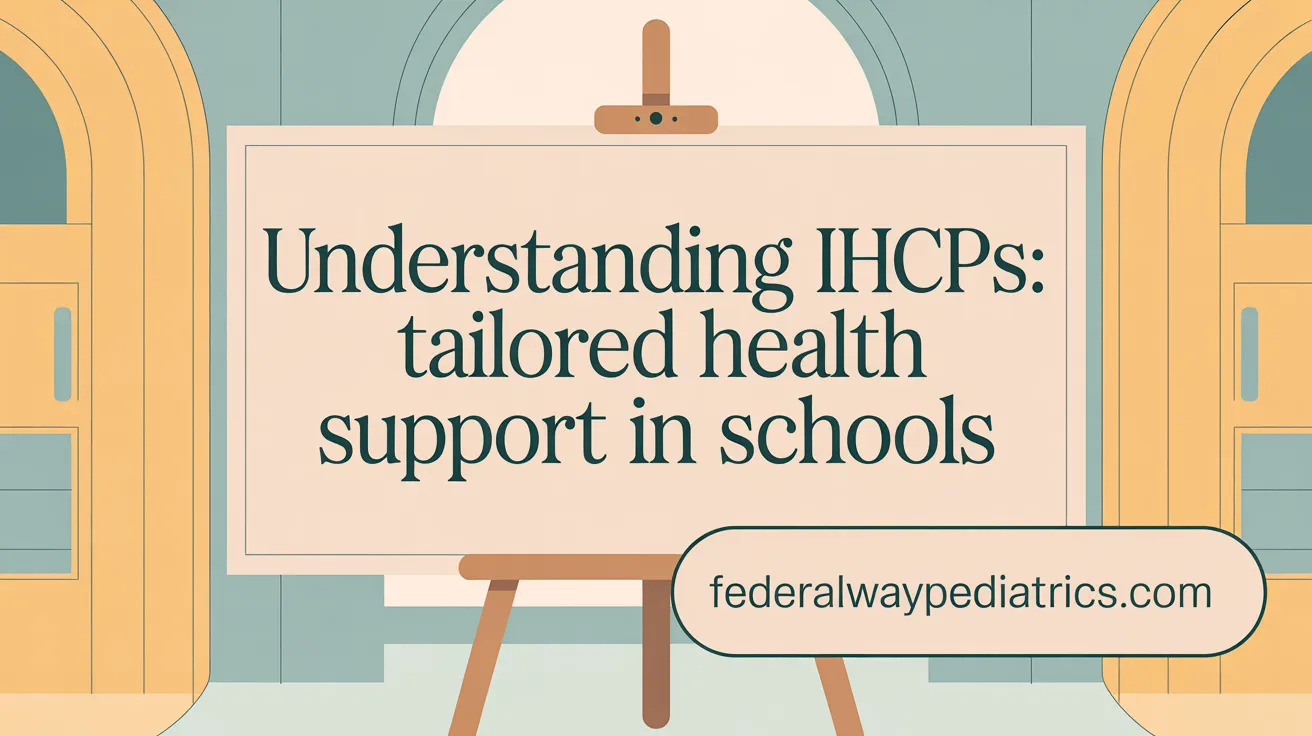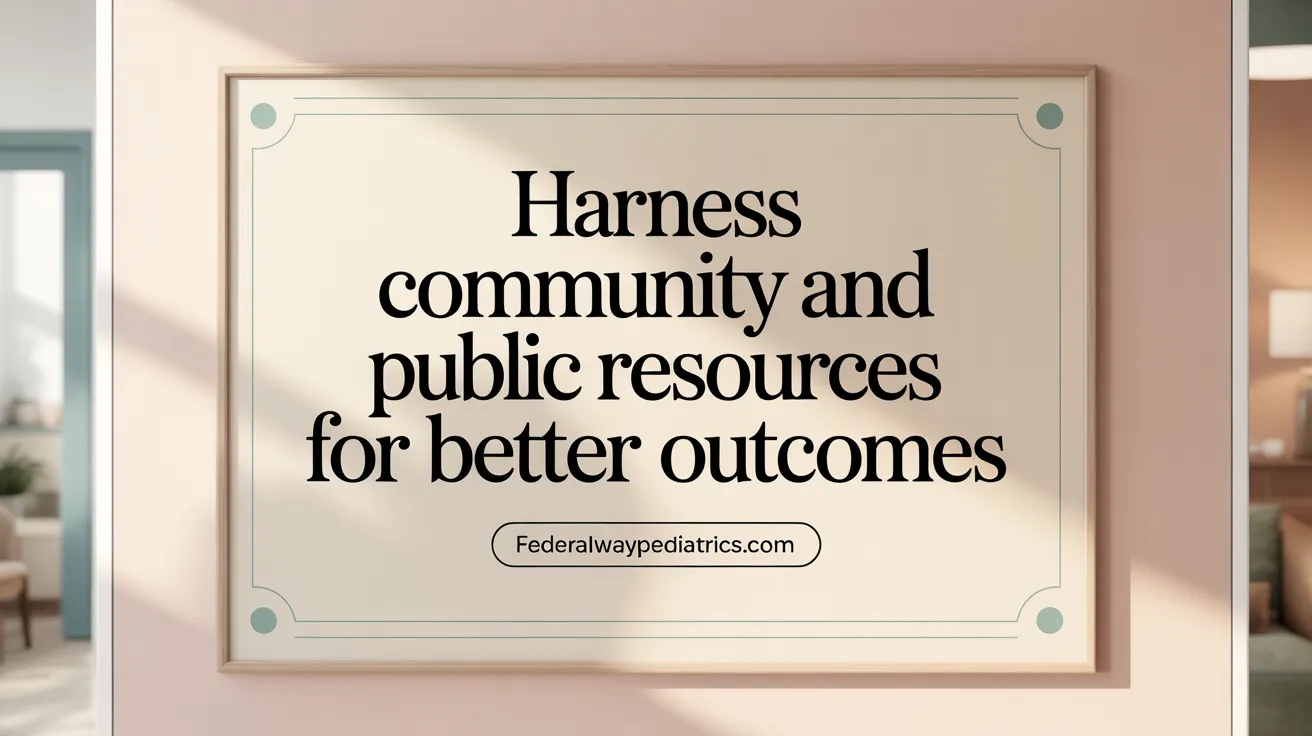Understanding the Importance of Personalized Healthcare for Children with Special Needs
Around one in five children in the United States lives with special health care needs, encompassing chronic physical, developmental, behavioral, or emotional conditions. These children often require services beyond typical healthcare, education, and social supports to thrive. Personalized healthcare plans, including Individualized Health Care Plans (IHCPs), play a crucial role in addressing unique medical requirements, promoting safety, enhancing educational engagement, and improving overall quality of life. This article explores the development, benefits, and implementation of such plans, highlighting the collaboration among families, healthcare providers, educators, and community resources that underpin successful personalized care strategies for children with special needs.
What Are Individualized Health Care Plans and Their Role in Schools?

What is an Individualized Health Care Plan (IHCP) and who is involved in creating it?
An Individualized Health Care Plan (IHCP) is a formal document created collaboratively by licensed school nurses, parents or caregivers, healthcare providers, and sometimes the child. Its purpose is to communicate and manage the specific healthcare needs of a student during school hours, ensuring that the child receives appropriate care and support throughout the school day.
What components should an IHCP include?
An IHCP typically contains detailed information such as:
- Assessment details and nursing diagnoses
- Clear goals and interventions
- Expected health outcomes
- A list of medical triggers relevant to the student's condition
- Medication management plans
- Accommodations and modifications needed in the school setting
- Nutritional requirements
- Emergency response procedures and plans
- Transportation considerations if applicable
This comprehensive plan serves to guide school staff on how to properly support the student's health and safety. See more about Creating an Individualized Healthcare Plan.
How does an IHCP benefit children with special health care needs in schools?
IHCPs help reduce the likelihood of medical emergencies by educating and preparing staff to handle the specific health care needs of the child. They also improve the management of symptoms, leading to better health outcomes. This support helps children maintain higher attendance and increases their ability to participate fully in academic and social activities, enhancing their overall school experience. For more details, see Benefits of Individualized Healthcare Plans.
How do IHCPs differ from IEPs and 504 Plans?
While IHCPs address the medical care needs of students, they focus on health management and typically do not involve learning modifications. Individualized Education Programs (IEPs) are legally mandated plans that detail educational goals and specially designed supports for students whose disabilities affect their learning. In contrast, 504 Plans provide accommodations under the Americans with Disabilities Act (ADA) for students who need access support but do not have disabilities that substantially impact their educational performance. Together, these plans ensure that students receive holistic support covering both health and education.
Integrating Personalized Healthcare: From Predictive Medicine to Home Care

What is personalized healthcare and how does it differ from traditional care?
Personalized healthcare is a proactive approach that utilizes predictive technologies and individualized data—including genetics, lifestyle, and medical history—to manage and prevent health conditions before they fully develop. Unlike traditional reactive treatment, which addresses health issues after symptoms appear, personalized care focuses on early risk assessment and tailored interventions to optimize health outcomes.
Why is early intervention critical in managing chronic conditions for children with special needs?
Early intervention plays a pivotal role in delaying or preventing the progression of chronic illnesses. By identifying risks early through personalized assessments, healthcare providers can implement primary prevention strategies, such as lifestyle modifications and continuous monitoring. This approach leads to better symptom management, fewer medical emergencies, and reduced long-term treatment costs. For more details, see Children and Youth with Special Health Care Needs.
How do personalized home health care plans support children with special needs?
Personalized home health care plans are customized to meet each child's unique medical, emotional, and developmental needs. Developed collaboratively by healthcare professionals, families, and caregivers, these plans provide comprehensive support that includes medical management, daily living assistance, and emotional care. This consistent, tailored care improves the child's quality of life while reducing gaps between clinical care and the home environment.
How are emerging health technologies used in personalized care?
Health technologies such as Fitbit devices for health monitoring monitor vital data including physical activity, sleep patterns, and nutrition. This information can be shared with health coaches and healthcare providers to facilitate personalized risk evaluation and encourage healthier behaviors. Using continuous data tracking enhances preventive care, making treatment plans more precise and responsive to the patient's needs.
Navigating Health Insurance and Support Programs for Special Needs Children

What health insurance options are available for children with special health care needs?
Children with special health care needs have multiple coverage options tailored to their unique medical and support requirements. Major programs include Medicaid and children with special health care needs and the Children's Health Insurance Program (CHIP), which offer comprehensive health services. Supplemental programs such as In-Home Supportive Services (IHSS) for children with disabilities provide assistance for care at home. Additionally, Individual and family health insurance plans marketplaces supply a variety of plans with protections for pre-existing conditions, further broadening access.
How do Medicaid and CHIP support children with special health care needs?
Medicaid serves as a primary coverage source for many children with complex health conditions, offering benefits beyond private insurance like long-term care and home health services. It guarantees preventive, therapeutic, and specialized treatments through the Early and Periodic Screening, Diagnostic, and Treatment (EPSDT) benefit as detailed in Medicaid and children with special health care needs. CHIP covers children whose families earn too much for Medicaid but still need affordable care. It offers low-cost access to essential services such as routine check-ups, immunizations, dental and vision care, and applied behavioral analysis (ABA) therapy, as explained in the Children's Health Insurance Program (CHIP).
What supplemental services assist families in caring for children with special needs?
Several programs support families managing the special care demands of their children. IHSS provides personal care, domestic support, protective supervision, and accompaniment services for eligible children in their homes. The Children’s Special Health Care Services (CSHCS) program delivers supplemental medical coverage, diagnostic services, and care coordination for children with severe chronic conditions. These and other state initiatives offer therapies, nursing care, transportation aid, and case management, helping families meet complex care needs efficiently.
Why is coordination of insurance and supplemental programs important?
Coordinated care between insurance plans like Medicaid, CHIP, private coverage, and supplemental programs is crucial to fully address the children's diverse medical and support requirements. Integrated benefits help ensure coverage for medications, therapies, medical equipment, and in-home services without gaps. This comprehensive approach reduces emergency incidents, improves symptom management, enhances attendance at school and social activities, and alleviates financial burdens on families, as addressed in Individualized Healthcare Plans (IHP).
Addressing Educational and Emotional Needs Through Integrated Care Plans

How do IHCPs integrate with educational plans like IEPs?
Individualized Health Care Plans (IHCPs) are designed to manage a child's medical needs during school hours and often work in conjunction with Individualized Education Programs (IEPs). While the IHCP focuses on health services such as medication timing, emergency response, and healthcare coordination, it complements the IEP, which addresses the child's academic and developmental goals. Linking these plans ensures coordinated efforts between healthcare providers, educators, and families to support the comprehensive needs of children with special health care requirements.
What legal rights do parents have regarding educational plans?
Parents hold key legal rights in the educational planning process. They must consent to evaluations, actively participate in developing the IEP, approve the goals and accommodations, and have access to dispute resolution processes. These rights are protected under laws such as the Individuals with Disabilities Education Act (IDEA), empowering families to advocate effectively for their child's educational and healthcare needs. More about Legal Rights in the IEP Process can be found for further information.
Why is addressing emotional and social needs important in care plans?
Children with special health care needs often face challenges with emotional well-being and social engagement. The inclusion of emotional, social, and behavioral supports in care plans enhances resilience and fosters active participation in school and social activities. Holistic care approaches lead to improved quality of life by supporting not only physical health but also mental and social development. See Individualized Care Plan for Children with Special Needs for more details.
How do schools prepare staff to support children’s medical needs safely?
Training is essential to ensure school staff can safely support students’ medical needs. Educators and support personnel receive instruction on relevant health conditions, medication administration, and emergency procedures tailored to each child's needs. This preparation helps minimize medical emergencies and creates a safer, more supportive school environment. Training topics are addressed in Individualized Healthcare Plans.
What considerations are involved in long-term planning for children with special needs?
Long-term planning involves multiple considerations such as establishing legal guardianship and conservatorships, creating Special Needs Trusts (SNTs), and planning for the transition from pediatric to adult healthcare and educational services. These plans aim to promote independence, financial security, and continuity of care and education as the child moves into adulthood. Additional information on Collaborative IHCP Development and Long-term Planning is available.
Building a System of Support: Community, Public Health, and Advocacy Resources

What public health programs support children and youth with special health care needs (CYSHCN)?
Public health programs such as those funded by the Title V Block Grants play a central role in supporting CYSHCN. State programs like California Children’s Services and local health departments collaborate to improve healthcare access, coordination, and quality of services tailored for these children. These programs offer resources that address their chronic physical, developmental, behavioral, or emotional conditions.
How do family engagement and advocacy groups contribute to care?
Families are vital partners in the care system, actively identifying emerging needs and participating in care planning. They advocate for better resources and promote awareness about the challenges faced by CYSHCN. Advocacy groups complement these efforts by providing education, fitness and nutrition programs, parent support, and guidance to navigate healthcare and social systems, as seen in HSCSN Health Services for Children with Special Needs.
What community resources are available for personalized healthcare?
Community resources emphasize comprehensive support through services such as developmental therapy services, rehabilitation, assistive technology, specialized medical equipment, and transportation assistance. Additionally, mental health support and programs that facilitate the transition of youth into adult care play a crucial role in personalized healthcare for children with special needs.
How are data and research used to enhance support systems?
Data-driven tools such as national surveys, data briefs, and virtual town halls are leveraged to track progress, highlight disparities, and shape robust policy frameworks. These instruments, provided by organizations like the National Center for a System of Services for Children and Youth with Special Health Care Needs, help implement evidence-based strategies that strengthen care delivery systems at local, state, and national levels.
Why is coordination among healthcare, education, and public health essential?
Effective coordination among healthcare providers, educational institutions, and public health agencies enables a comprehensive and streamlined system. This collaboration addresses the medical, educational, emotional, and social needs of children with special health care needs, reducing gaps in services and leading to better health and developmental outcomes, as outlined in resources on developing an Individualized Healthcare Plan (IHP) and Individualized Health Care Plans.
The Path Forward for Personalized Care
Personalized healthcare plans for children with special needs represent a vital framework to ensure safety, promote well-being, and empower children and families. Through collaborative development of Individualized Health Care Plans, integration with educational supports, active family engagement, and access to comprehensive insurance and community resources, these children receive tailored care that addresses their complex medical and developmental requirements. Advances in predictive medicine and technology further enable preventive strategies, supporting healthier outcomes across lifespans. As public health programs and advocacy efforts continue to strengthen systems of care, the holistic, coordinated approach embodied in personalized healthcare plans is essential to helping children with special needs achieve their fullest potential in school, home, and community settings.
